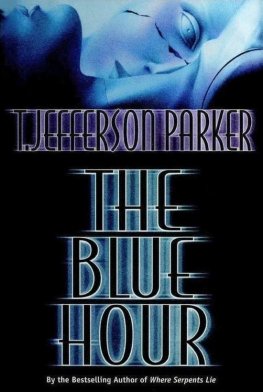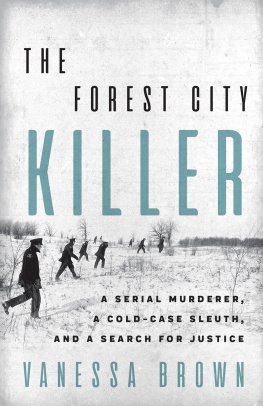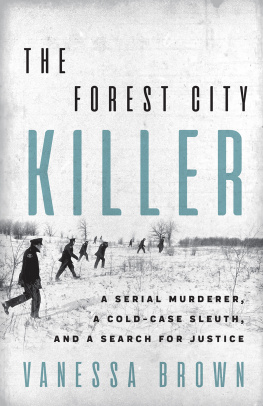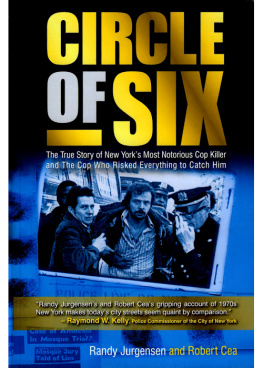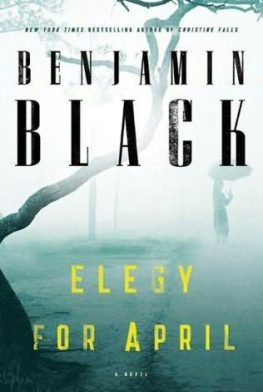
Leslie Glass
Tracking Time
The sixth book in the April Woo series, 2000
The inspiration for Tracking Time came from many sources. The impact of the recent spate of children killers has affected every community in America. As in no other time in our history, children and adolescents have become a source of suspicion, a threat to the nation from inside the family itself. Tracking Time is a story about the devastating effects of parents losing touch with the inner lives and needs of their children.
I am grateful to Detective Al Sheppard, formerly of Major Case Squad, NYPD, for his input and insights, to Precinct Commander Captain James O'Neill for hosting me as Commander for a Day at the Central Park Precinct, to Commissioner Howard Safir and the Police Foundation for all the good they do for New York City. Thanks also to Thomas Shelby, dog trainer to my own dogs, Peanut and Rocky, and a SAR officer in the Rock-land County Sheriffs Department, who taught me so much about dogs and tracking that I had to write about it. Any errors about tracking, police procedure, and New York City geography are mine alone.
In the Time series, I try to present a realistic portrayal of the life of a psychoanalyst a hundred years after the birth of psychoanalysis, at a time when psychoanalytic theory is the basis for all interactive therapy in the mental field, has radically impacted the way we think in every area of our society, and yet is no longer considered relevant to psychiatric training and is not taught in most medical schools. My appreciation this year goes to the Psychoanalytic Institutes around the country, who are encouraging their members to widen their outreach with programs to help a broader population of parents, children, and schools address the climate of aggression, alienation, and violence that's having such a deadly effect on young people today.
Greatest thanks to Dr. Peter Dunn, medical director of the New York Psychoanalytic Institute Treatment Center, who has been a wonderful teacher and guide in my research for this book and who read every draft. Any errors in psychopathology are his alone.
Thanks to Louise Burke, Nancy Yost, Audrey LaFehr, and all the good people at Dutton and NAL, who work so hard to edit, produce, and sell the books.
Last, each of us on this earth is on a perilous hero's journey. My special kudos this year go to Alex and Lindsey, Jonathan and Tom.
Happy families are all alike. Every unhappy family is unhappy in its own way.
Leo Tolstoy, Anna Karenina
Just before twilight on a balmy September New York evening, Dr. Maslow Atkins set out for a jog in Central Park and never came back. He calculated that he had just the right amount of time to run south along the path closest to Central Park West to Fifty-ninth Street and back. Dr. Atkins was a man of regular habits. He timed himself on each outing, knew his speeds and his muscles. And the denizens who claimed the park as their own knew them, too.
Like many compulsive runners, Maslow felt edgy when deprived of his exercise. That day he'd watched a silvery morning turn to angry afternoon thunderstorms, and he'd been preoccupied by the threat of possibly having to run in the rain. The nagging irritation caused the slightest dulling of his senses and, unthinking, the young psychiatrist made a blunder in his work.
Maslow Atkins, M.D., five foot six inches tall, slender build, strong features muted only slightly by the perpetual beginnings of a beard, straight medium-brown hair just long enough on top to occasionally break free of its crest and fall forward to tickle his brow. Not large or classically handsome, Maslow was most notable for his eyes, which were, in turn, light brown, dark brown, and green, depending on his mood and the color of his shirt. His eyes were the most arresting aspect of his person, piercingly sharp in all his humors.
At thirty-two Maslow was a man not quite finished.
He was a fully licensed psychiatrist, but not yet a father, not married, and not even fully certified to practice his chosen subspecialty of psychoanalysis. Throughout the years of his training he had kept his head down and worked hard. Coming and going from his building every morning in his suits and ties, and every evening in his running clothes, with the water bottle hanging on his hip, he looked like one of the thousands of affluent people of his age who flocked to New York City from all over the country and the world to build a career, to make a name for themselves, and probably not go home again.
He could have been a banker, a doctor, a lawyer, an advertising executive, a money manager. In any case, he had the appearance of a serious professional on the rise. In fact, Maslow was a thoughtful person eager to do some good in life. And he was not from somewhere else. He was a New Yorker, born and bred just across the park on the East Side. Park Avenue, to be exact. He'd been a city brat and thought he knew all the angles. As a doctor, his guiding principle was the physician's oath: First, do no harm. And his personal rules about his own conduct were so strict that he would not take a drink even in a social situation lest it make him stupid or spin him out of control.
All through the moody afternoon, he'd brooded about his patient Allegra. Her name was lovely and light. The word conjured quicksilver in his mind. In music, Allegro meant fast. In Italian, happy. In Spanish, Alegria meant joy. Allegra, the petite raven-haired young woman of twenty, should have been as spirited and confident as she was beautiful. But she was not spirited and joyful. She was very troubled. Maslow felt an unusually deep connection with her and didn't know why. Sometimes he thought she was copying his mannerisms. Her smile and the way she expressed things were oddly familiar. So were some of the stories she told, familiar even though she had not come from here. The way she crossed her legs and pursed her lips when she was angry were particularly disturbing to him. But most disturbing of all was the fact that sometimes she starved herself and sometimes she cut her own flesh.
In their session that day Allegra had told Maslow that in the first moments after she went to work on herself with a razor and watched the blood bubble up out of the cuts on her belly, she felt bliss. Then, nonchalantly, she'd lifted her blouse for him and showed the scars. The sight of so many even rows of red notches scored across her slender torso had made him queasier than anything he'd seen in medical school. She was his charge, his patient, and he was not working quickly enough to stop her. He was particularly chilled by the fact that whole rows of the red seams on her belly were recent, occurring without his knowledge after she'd started seeing him. A few were brand-new. The idea that she hurt herself after sessions with him disturbed him deeply.
That day after showing off her scars, she'd expressed confusion about sometimes caring about her father despite the horrific things he'd done to her. Maslow remarked that children loved their parents no matter what they did. She'd become enraged at him and had left his office in tears. Ever since, he'd been in a panic about what she might do to herself.
He was still worrying about it at seven o'clock when he returned home from work. He lived in a huge sixty-year-old co-op that took up a whole block on Central Park West.
"Some evening, huh, Doc." The heavyset evening doorman called Ben stood under the canopy, watching him approach.
Next page

